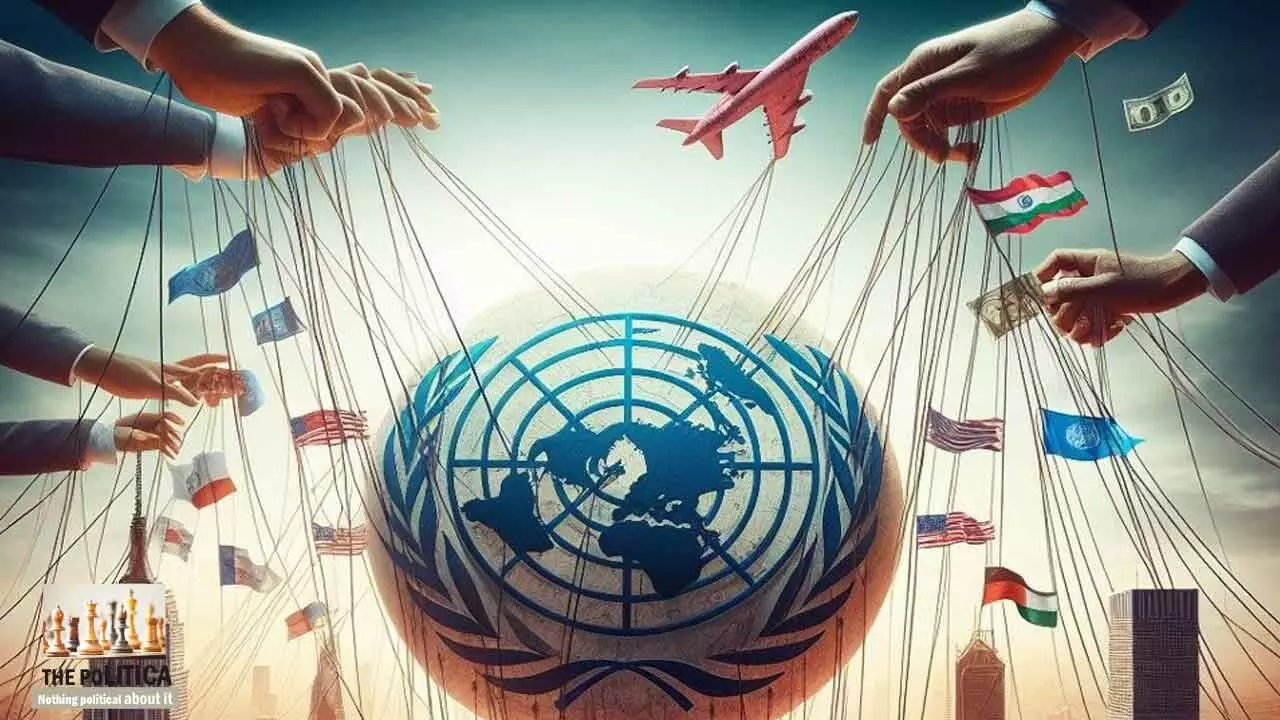As the UN struggles for purpose, leaders trade lies, threats, hollow victories
The UN is in a state of crisis… when peace is under threat from conflicts, when development is derailed by lack of resources
As the UN struggles for purpose, leaders trade lies, threats, hollow victories

Once envisioned as a beacon of global unity, the United Nations General Assembly has increasingly become an annual jamboree of chaos and posturing, where leaders of questionable credibility and polarising policies dominate the stage.
Far from its 1945 mandate to foster peace and cooperation, the UNGA now amplifies a cacophony of lies, self-proclaimed victories, and alliances formed more for optics than for global good. As small nations and island states see their pleas ignored, the UN's grip on the global community weakens, held hostage to a political theatre where truth is sidelined and actors spin narratives to justify their actions.
The annual jamboree
Each year, the UN General Assembly draws together nations, leaders, the press, and geopolitical analysts. What unfolds is a ritualised parade of entrenched biases, veiled threats, open blackmail, and self-congratulatory speeches on the global stage.
None of this is new; it has been the norm for decades. Yet this year, the spectacle has reached a crescendo, exposing a body struggling to remain relevant while its theatre of power spirals ever more chaotically.
When the curtains fall, the press dutifully fills columns and airtime with soundbites, while analysts scramble to extract meaning from the absurdities staged before the world. The UN was never meant to be a theatre of spectacle; it was conceived after World War II to serve the global good.
Today, however, it has drifted far from that mission, losing the capacity to deliver anything of substance to small and disadvantaged nations, vulnerable island states, and much of the developing world.
Jaishankar holds the mirror
Bharat’s External Affairs Minister, S Jaishankar, took the stage at the ongoing General Assembly to hold a mirror up to the gathering, pushing for a course correction. He questioned bluntly: "We must ask ourselves today: How has the UN lived up to expectations?"
Carrying out an objective analysis of its report card, he noted, “The UN is in a state of crisis… when peace is under threat from conflicts, when development is derailed by lack of resources, when human rights are violated by terrorism, the UN remains gridlocked.”
This was not just New Delhi's position, but the voice of the Global South — nations that have long felt shortchanged. It needed to be said, and Jaishankar said it.
The veto irony
The veto power is the UN's deepest structural flaw. Since the organisation's inception, the US, France, and the UK, democracies at home and self-appointed arbiters of democracy abroad, have wielded 44 per cent of all 312 vetoes, consistently blocking measures that challenge their own interests.
In an international organisation, decisions that impact the global community should be made collectively, rather than being dictated by a select few nations. The irony is stark: democracies that preach equality at home have institutionalised inequality on the global stage.
History of failures
The UN's failures are hardly a new phenomenon. Its authority and credibility have been under challenge for decades, particularly over the last three decades. The US has been a leading violator, with actions in 1991, 2003, and recent years significantly undermining UN authority.
The Iraq WMD case stands as a well-documented example of fabricated narratives, and the pattern of unilateral action continues. That legacy persists today, with nations such as Pakistan using UN sessions to push their own agendas under the guise of legitimacy.
As Jaishankar noted, "When peace is under threat from conflicts, when development is derailed by lack of resources, when human rights are violated by terrorism, the UN remains gridlocked. As its ability to forge common ground diminishes, belief in multilateralism also recedes."
UN toward collapse
The question is stark: is the UN still relevant, or has it become hostage to the vested interests of the P5 hijacked into a jamboree of lies, threats, and fabricated stories?
"Reforming multilateralism is an imperative. Both permanent and non-permanent membership of the Security Council must be expanded. A reformed Council must be truly representative," stated Jaishankar during the 80th session. This sentiment echoes New Delhi's long-standing advocacy for a more inclusive global governance framework.
The call for reform is not a new one. The G4 nations — Brazil, Germany, India, and Japan — have consistently advocated for expanding both permanent and non-permanent seats to better reflect contemporary geopolitical realities. Yet progress remains elusive, as entrenched interests and geopolitical rivalries stall meaningful change.
Thus, the UN remains stalled, spinning dangerously toward the ground. The P5 have no incentive to initiate recovery, while non-permanent members have no control of the “joystick" to steer corrective action. In many ways, the UN now resembles a first-generation fighter jet — primitive, difficult to control, spiralling out of control, hurtling toward a crash.
A global institution at a crossroads
The UN's relevance hangs in the balance. While it was conceived to be a force for peace, cooperation, and collective security, decades of gridlock, unilateral action by powerful nations, and institutional inequities have eroded its credibility. Small nations, island states, and the developing world often bear the brunt of its ineffectiveness.
The UN can still reclaim its purpose, but it requires bold reform, equitable representation, and a renewed commitment to multilateralism that prioritises global good over self-interest. Without decisive action, the world may witness a UN that continues to spiral, a spectacle where truth is sidelined, alliances are hollow, and the cries of the disadvantaged remain unheard.
Whether the UN can survive the next decade and reestablish itself as "a force of leadership and hope" remains uncertain. One thing is clear: the world cannot afford a UN that spins uncontrollably while the challenges it was created to address intensify.
(The author is Founder of My Startup TV)

